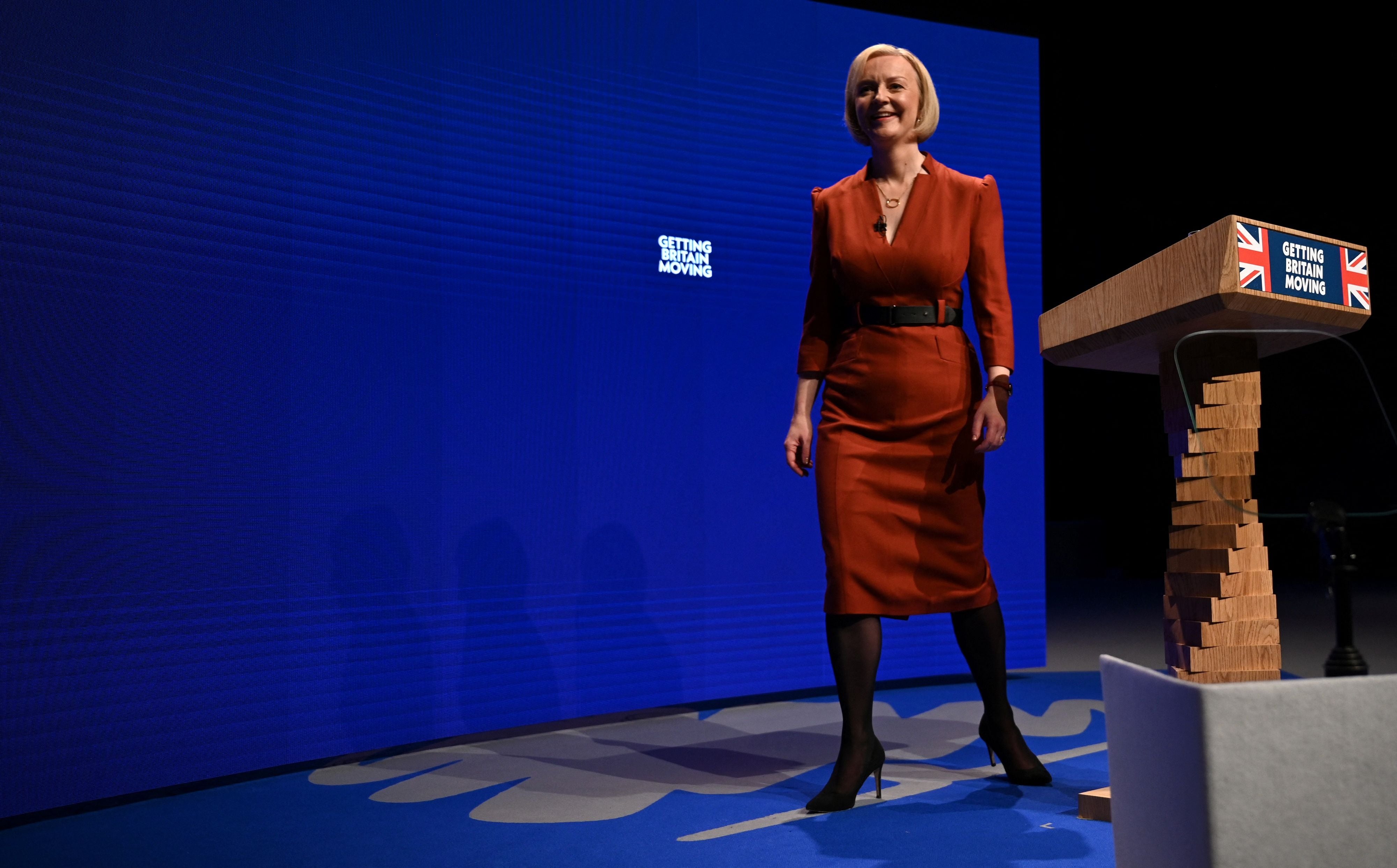Liz Truss is talking to the room – not the country. And that doesn’t win elections
The speech suddenly lurched to rhetorical nonsense like ‘anti-growth coalition’, three words which are utterly meaningless for most people, writes Salma Shah


Conventional wisdom dictates that British elections have to be won from the centre ground, expanding out. Pushing from the right has always been electorally limiting. But of course, conventional wisdom is for unpatriotic “declinists” in this regime.
If history will not serve as a warning, perhaps the government would like to take a look at More in Common and Public First’s research which has detailed the segments of voters that built the Tory voter coalition of 2019. It shows that the Conservatives continually grew their vote share in successive elections by capturing more and more of the centre, whilst simultaneously preventing fractures on the right. Despite outward appearances, the Tories were always getting stronger.
Of course, Boris Johnson’s triumphant show was always destined for a lacklustre encore, but at the very least, the current PM should consider looking beyond her base to secure that ultimate political unicorn, a fifth term.
That’s what this conference speech had to achieve, a vision beyond the perspective of the party faithful in the hall. When I started going to the conference back in 2007, David Cameron was trying to win over a sceptical party resisting “modernisation”. His conference speeches always tried to speak to the country, not the party. They had themes and announcements and a coherent argument. He always understood it was pointless to preach to the choir and it’s the exact opposite of what Liz Truss did, who instead gazed intently at her navel.
It’s a fact that all conference speeches are weird. They sit uncomfortably between a format largely unchanged since the 1950s and the current world powered by memeification and edited clips. The result can render even the most soaring rhetoric ridiculous.
So, in fairness, the PM who is not a natural performer got through it. But that just isn’t good enough, the speech lacked a purpose and cantered through what sometimes sounded like a stream of consciousness. It didn’t show the voting public the end destination and the journey she was taking to get us there.
She made an attempt to humanise herself, leaning into her “backstory” starting at comprehensive school, but somehow missed making it relatable, thus exposing it as a device rather than an experience. She spoke well of her motivations to change the status quo to give opportunity to people, but the message didn’t land when the text suddenly lurched to rhetorical nonsense like “anti-growth coalition”, three words which for most people are utterly meaningless.
To keep up to speed with all the latest opinions and comment, sign up to our free weekly Voices Dispatches newsletter by clicking here
The most interesting thing about the speech was the Greenpeace protesters sneaking in and causing a fuss, giving her audience a reason to chivvy her along. A welcome distraction from the jarring failure to find a rhythm for the speech’s clap lines, which fell flat.
There are few in the history of conference speeches that truly stand out. Thatcher’s “you turn if you want to”, Kinnock’s scuttling Labour councillors and Blair’s clause four “moment” are the ones people talk about because they were attempting to achieve a particular objective. They were impassioned, purposeful and strategic. They tried to convince a sceptical audience of what was needed at pivotal moments in the journey to success. This speech needed to do the same but was wholly forgettable because it gave us no pathway to the future and little to hope for.
Liz Truss’s government has to succeed. But in order to do so, it has to remember who it serves and therefore who it needs to address. If she fails to see that government is not an opportunity for an ideological experiment but instead is there to serve the public, she will find more and more of the Tory coalition breaking away from her.
Join our commenting forum
Join thought-provoking conversations, follow other Independent readers and see their replies
Comments
Bookmark popover
Removed from bookmarks